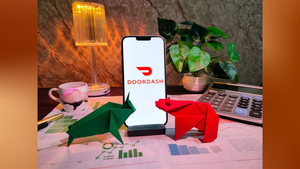Cotton farmers across globe commit to sustainable cotton production
(BPT) - Consumer demand for sustainable cotton is at an all-time high. But for farmers, sustainability isn't just a word on a clothing tag. It's a dedication that begins before a single seed is planted.
When weather, pest and disease pressure close in on a cotton crop, ready to steal yield and profits, how do farmers across the globe meet this ever-increasing demand for sustainable cotton?
This question, and the conversations it spurred, were at the forefront of 'United for the Biggest Job on Earth,' an event hosted by BASF Agricultural Solutions at the United Nations headquarters on September 12.
'We're here today because BASF is committed to advancing the UN Sustainable Development Goals, and there is no greater person to help us address those challenges than our farmers,' said Ray Daniels, BASF Seed Sustainability Manager.
The two-hour event was led by Daniels and Jessica Monserrate, Head of Sustainability for BASF. Five cotton farmers from Greece and five cotton farmers from the U.S. (three from Texas and two from Mississippi) shared with BASF leadership from North America and Europe, as well as national textile and agriculture media, on the many on-farm sustainable practices they are currently enacting, what they need from industry stakeholders and their hope for the future.
'Most people aren't aware of the effort farmers like us are putting into sustainable agriculture practices, and we want to continue to share our story and gain their support,' said Randy Smith, Texas cotton farmer.
Randy's wife Pat adds, 'We raise our families here. We want to protect the land for generations to come.'
Farming for the future
All 10 cotton farmers are part of the U.S. e3® Sustainable Cotton program or the European Certified FiberMax® program. Both provide field-level traceability for cotton, as well as a way for farmers to track and measure the environmental and social impacts of their cotton production.
Sustainability isn't a one-size-fits-all approach. Texas cotton farmers Richard Gaona and Jon Watley discussed how cover crops might work in a field in one part of the state, and not in another.
'Our operations can be as unique as the land we steward,' said Gaona. 'Having a partner to help us find the right solutions and enact the right sustainability practices is important.'
Helping do the Biggest Job on Earth
Having a true partnership with farmers is one of the main priorities of the e3 Sustainable Cotton program, which supports farmers advancing the preservation of natural resources, the viability and vitality of cotton farming communities and the production of high-quality, sustainable cotton. It's important that farmers have the tools to successfully adopt and accelerate sustainable practices on-farm, as well as meet the needs of brands and retailers who are expected to demonstrate transparency to their consumers.
The e3 Sustainable Cotton program provides brands and retailers in fashion and textile industries access to sustainably produced FiberMax and Stoneville® cotton, with measured, validated and reported sustainability metrics that they, and their consumers, can trust.
In 2022, more than 250 farmers enrolled in the e3 Sustainable Cotton program and made positive impacts in sustainable cotton production.
- 79% of e3 Sustainable Cotton farmers used reduced tillage practices, minimizing soil turnover to maintain nutrients and keeping a farmers' No. 1 asset healthy. Not only does reduced tillage keep soil from moving, but it also requires fewer machinery trips through fields, reducing greenhouse gas (GHG) emissions.
- 69% incorporated practices that build carbon through their production system, including practices like crop rotation, reduced tillage and cover crops to improve soil quality. By storing carbon in the soil, it limits carbon loss to our atmosphere, reducing climate impacts from cotton production.
Farmers provide the fuel, feed, food and fiber for our world and are an essential component to the global economy. With that responsibility comes a heightened need to make sure their voices are heard, and their industry is understood for all consumers.
'Our ag systems will have to undergo an accelerated transformation to provide for our growing population, all the while ensuring we're mitigating impact to our environment,' said Monserrate. 'It's the Biggest Job on Earth and BASF will be by their side.'
Always read and follow label directions.
E3, FiberMax and Stoneville are registered trademarks of BASF.
© 2023 BASF Corporation. All rights reserved.
More News
View More




Recent Quotes
View More
Quotes delayed at least 20 minutes.
By accessing this page, you agree to the Privacy Policy and Terms Of Service.